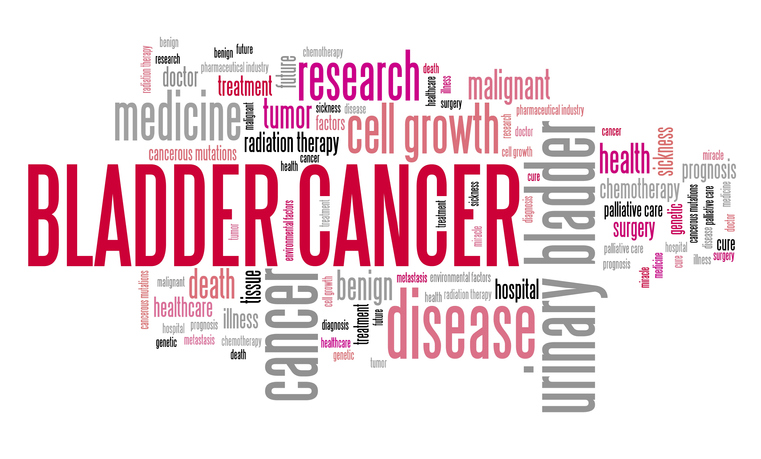Are Diet Sodas & Cigarettes the ‘Perfect Storm’ For Bladder Cancer?

By Joy Stephenson-Laws, J.D., Founder
Professional golfer, John Daly, recently shared some very unfortunate news. He has bladder cancer. According to a report from People Magazine, Daly had been having kidney stones and back pain and saw a doctor.
(Usually, blood in the urine (hematuria) is the first sign of bladder cancer, according to the American Cancer Society).
Daly, who is 54-years-old, said that he is still shocked by his diagnosis but remains hopeful, as the cancer was caught early. The golf champ has been a smoker and has admitted to having a diet soda habit.
“I'm cutting way, way back on the Diet Coke and counting minutes before I can have a cigarette. I'm trying to quit smoking,” he said, according to People.
As you likely already know, smoking cigarettes has been linked to all types of cancers (not just lung). The Centers for Disease Control and Prevention (CDC) reports that cancers linked to tobacco use make up 40 percent of all cancers diagnosed in the United States.
Harvard Health reports that smoking cigarettes is the most “important cause” of bladder cancer.
“Smokers are more than twice as likely to get bladder cancer as nonsmokers. When cigarette smoke is inhaled, many of the toxins it contains are absorbed into the bloodstream, filtered by the kidneys, and excreted into the urine. As a result, the bladder lining is subject to prolonged contact with carcinogens.”

Think of it as being like a balloon that holds urine. The bladder is about the size and shape of a pear when empty. Along with the kidneys, ureters, urethra and urethral sphincter, the bladder is part of the urinary system.
It is not 100 percent certain that there is a connection between diet soda and bladder cancer, however, according to the National Cancer Institute, “Questions about artificial sweeteners and cancer arose when early studies showed that cyclamate in combination with saccharin caused bladder cancer in laboratory animals.”
(Sodas, diet or not, are not considered to be healthy beverages. They are processed, dehydrating and void of nutrients. And, of course, non-diet sodas are full of refined sugars which are bad for our health and may contribute to obesity).
How common is bladder cancer?The American Cancer Society states that bladder cancer is the fourth most common cancer in men (but is less common in women). The Society’s 2020 estimates for bladder cancer cases are:
- About 81,400 new cases of bladder cancer (about 62,100 in men and 19,300 in women).
- About 17,980 deaths from bladder cancer (about 13,050 in men and 4,930 in women).
Caucasians are twice as likely to develop bladder cancer compared to African Americans. Asian Americans and Indian Americans have slightly lower rates. Bladder cancer usually occurs in older adults. About nine out of 10 people diagnosed with this cancer are over the age of 55 (Daly is 54). The average age at the time of diagnosis is actually 73, but we can certainly be proactive well before reaching this age.
How can we be proactive about preventing advanced bladder cancer?
If you are a smoker, quit immediately. I cannot stress this enough.
If you notice blood in your urine, speak with a competent healthcare professional immediately. At your next check-up, you can also request a urinalysis. This will determine if there is blood or anything else abnormal in your urine. Also talk to your doctor if you regularly suffer from bladder infections and kidney stones.
The following factors are also key:
- Avoid or limit exposure to chemicals. “Workers in industries that use certain organic chemicals have a higher risk of bladder cancer. Workplaces where these chemicals are commonly used include the rubber, leather, printing materials, textiles, and paint industries. If you work in a place where you might be exposed to such chemicals, be sure to follow good work safety practices,” according to the American Cancer Society.
- Hydrate. Drinking plenty of water may help prevent bladder cancer. Some studies have shown that drinking water and ridding your bladder of toxins through frequent urination may help prevent bladder cancer.
- Avoid arsenic. Arsenic is naturally found in the earth’s crust, but it is highly toxic. “Arsenic in drinking water has been linked with a higher risk of bladder cancer in some parts of the world. The chance of being exposed to arsenic depends on where you live and whether you get your water from a well or from a public water system that meets the standards for low arsenic content. For most Americans, drinking water isn't a major source of arsenic,” reports the American Cancer Society.
- Be aware of your medications. “According to the US Food and Drug Administration (FDA), use of the diabetes medicine pioglitazone (Actos®) is linked with an increased risk of bladder cancer. The risk seems to get higher when higher doses are used,” (American Cancer Society). “Dietary supplements containing aristolochic acid (mainly in herbs from the Aristolochiafamily) have been linked with an increased risk of urothelial cancers, including bladder cancer.”
Finally, as always, eat a nutrient-dense, anti-inflammatory diet as opposed to a nutrient-void, inflammatory diet. This means eating plenty of fruits and vegetables and limiting or avoiding processed, junk foods.
“It is biologically plausible for dietary factors to influence bladder cancer risk considering that beneficial as well as harmful components of a diet are excreted through the urinary tract and in direct contact with the epithelium of the bladder,” according to a study published by the National Institutes of Health.
It is also critical to ensure that you are nutritionally balanced. I highly recommend taking routine nutrient tests in order to determine if you have any nutrient imbalances or deficiencies. If you do, a competent healthcare professional can work with you on making the necessary dietary changes and recommend quality supplements if necessary.
Enjoy your healthy life!
Disclaimer: This article is not intended to provide medical advice. Please consult with your doctor or another competent healthcare practitioner to get specific medical advice for your situation.
The pH professional health care team includes recognized experts from a variety of health care and related disciplines, including physicians, attorneys, nutritionists, nurses and certified fitness instructors. This team also includes the members of the pH Medical Advisory Board, which constantly monitors all pH programs, products and services. To learn more about the pH Medical Advisory Board, click here.







